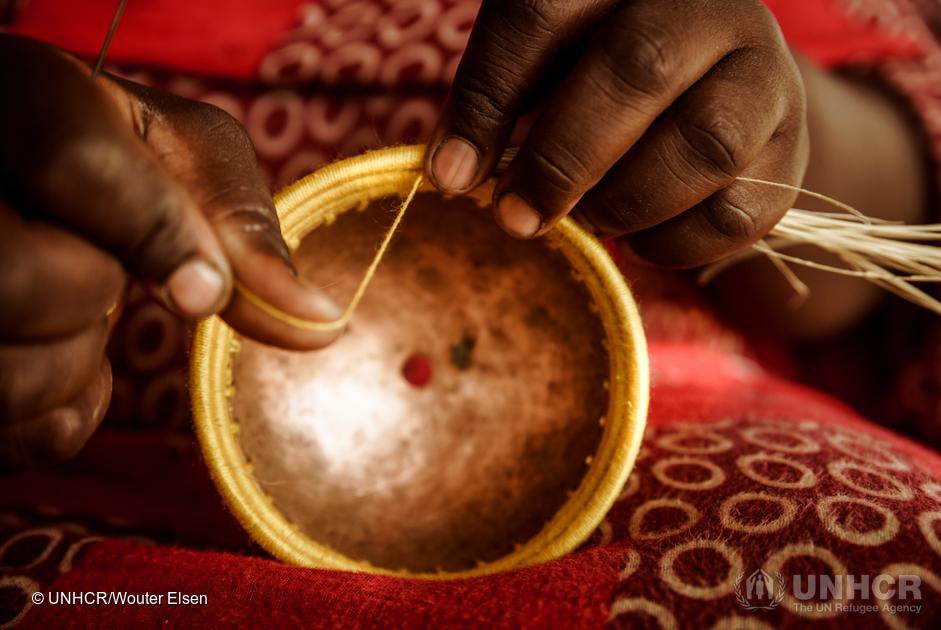Where development work engages the arts and culture, it typically does so to communicate findings, educate or mediatise. Work in this theme takes a practice-led approach to understanding the relationships between migration and inequality in the context of the Global South. It engages with, but also challenges, the Global North’s measurement-heavy and largely economistic perceptions of these relationships.
As our work proceeds, this theme will consider, critically analyse and intervene artistically and through multilingual approaches to translate what resonates aesthetically. It will create migratory aesthetics, demonstrating how the arts and humanities can expand social-scientific and scientific frames of reference for research into migration and inequality, creating environments where human well-being is valued and flourishes.
WP11 Arts, creative resistance and well-being brief
WP11 - Multilingualism and Knowledge Production Concept Note
Research Context
WP11 will provide a dramaturgical and devised shape to the evaluation and monitoring of migration and inequality as it forms, is represented and as data sets develop. This means that WP11 will identify meaningful materials and relationships in each corridor and through the work packages which distil the essence for communication or the work of the Hub. For example, in past projects this approach has meant a careful consideration of transcripts and literature surveys from which key [idioms and phrases have been distilled and then used to expand on the generative themes present in research, and to enable others - especially our partner in Noyam and LitFest Harare to produce representations of the research. Key themes will be generated from the corridors and research packages but will focus on core concepts, multilingual renderings of these concepts and aesthetic, acoustic, visual and sensory devising and dramaturgy, with a focus on live and digitalisation of live performance. Poetry, dance, music, story-telling and working with found objects, natural objects and textiles / fashion will be core to the work. We envisage working firstly with the concept of corridors and with materials - focused on cloth, beads and gourds in the first instance; with storytelling focused on migration inequalities; with southern indigenous and oral histories and songs relating to migration. Each corridor will provide artists and contacts for the WP11 artist-researchers to work alongside for both the making of work and recording of this work in each corridor (and through corridor budgets) and then synthesising and considering the artistic evaluation through at least one arts conference / UNESCO Spring School to be hosted in the Global South in year 4 of the work (and year 2 if funds permit). Working with both LitFest/CHIPAWO, with Poetry and with the Ha Orchestra, NOYAM Institute for African and alongside PosNeg will allow a diversity of forums and partners to turn the generative
Research Inquiry
The Arts and Humanities do not generally proceed using research questions or even methodology. They are evaluating modes of inquiry which seek to interrogate, stimulate, prod and examine critically, and to proceed aesthetically and rhetorically through dialogue, argument, debate and hermeneutics. In addition, they can work through practice-led artistic inquiry, which relies on ways of working which are disciplined in each artistic genre and which for which both artistic process and artistic product are important. In both process and product, the arts and humanities offer ways of evaluating and monitoring the health and wellbeing of societies, communities and in the case of WP 11 of migration and inequality across the corridors and WPs. Whilst it is possible to generate research questions to true to the developmental, dramaturgical, pedagogic, multilingual and multi-disciplinary nature of the work of the hub, WP11 will not be submitting research questions. As each corridor and WP proceeds WP11 will consider, critically analyse and intervene artistically, and through multilingual approaches to translate what resonates aesthetically. This will be done to enable corridor-based artists to work conduct their work in dialogue with the migrant artist-researchers in WP11 and to provide decolonising forums for discussion of a) artistic and multilingual making processes and b) artistic and multilingual work in its final display. Each Corridor will be responsible, with WP11, for commissioning artistic work to reflect and intervene in its own research, in consultation with both WP11 and PositiveNegatives. PositveNegatives and WP11 will work in close dialogue, in synthesis and also independently, to develop critical views of each other’s work, and also to create artwork, and reflection on multilingual research and artistic research within the Hub.
